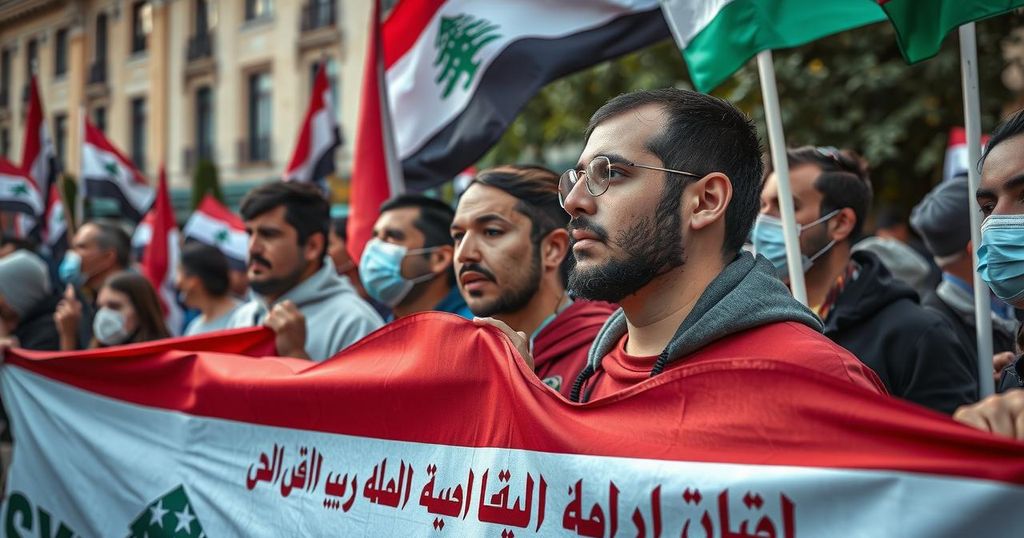Hundreds protested in Tripoli, Lebanon, calling for the release of Islamist detainees held since the Syrian civil war. Many detainees, who participated in the conflict against Assad’s regime, have been imprisoned without trial. The demonstration reflects broader issues of justice and sectarian tension in Lebanon’s complex political landscape.
On Sunday, a significant protest took place in Tripoli, Lebanon, where hundreds gathered to urge the authorities to release Islamist detainees who had been imprisoned following the civil war in neighboring Syria. The demonstrators seek justice for those, primarily Lebanese, who returned from fighting against the regime of Bashar al-Assad and faced arrest upon their return to Lebanon. Ahmad al-Shimali, a participant in the rally, stated that many of these detainees were involved in supporting the Syrian uprising, as the nation’s civil war commenced in 2011.
The rally occurred shortly after Islamist forces played a role in toppling Assad, prompting calls for the release of the individuals imprisoned during the conflict. Protesters emphasized the need for action, noting that many detainees have been held for years without proper trials or due process. Prime Minister Najib Mikati previously indicated that the situation could be resolved, subject to parliamentary approval for a general amnesty.
Tripoli has a complex historical backdrop, having experienced clashes between Sunni and Alawite communities, particularly during the onset of the Syrian civil war. These tensions contribute to the ongoing issues surrounding Islamist detainees, highlighting the need for a fair legal process and resolution to this matter.
The Syrian civil war, which erupted in 2011, was marked by violent repression of pro-democracy protests by the Assad regime. Many Lebanese citizens chose to fight on behalf of Syrian rebels and jihadist groups opposing Assad. Upon returning to Lebanon, these individuals faced criminal charges, leading to ongoing protests advocating for their release. The political climate in Lebanon, influenced by sectarian divisions, further complicates the plight of these detainees, as calls for justice intersect with broader issues of governance and human rights.
The situation surrounding the Islamist detainees in Lebanon highlights the intersection of human rights and politics in a nation deeply affected by regional conflicts. The ongoing protests in Tripoli seek to draw attention to the unjust treatment of these individuals and push for their release. With calls for justice growing louder, the need for a resolution remains pressing, as stated by Prime Minister Mikati, who has acknowledged the necessity of parliamentary action to address this issue comprehensively.
Original Source: www.france24.com






